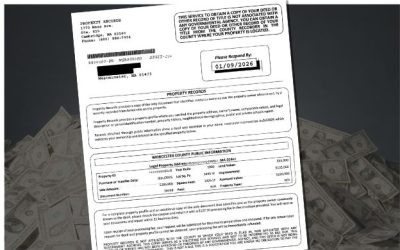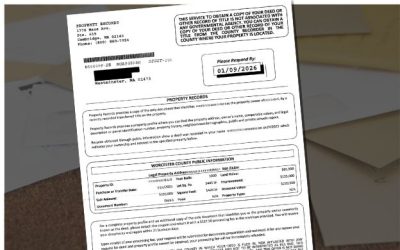
Jun 19, 2025 | Around The Home, Around The Hoome, Artificial intelligence, Buying Real Estate, Chapter 7 Bankruptcy, Consumer Tips, Credit Scoring, Fair Housing, Federal Reserve, FHFA, Financial Crisis, Financial Fraud, Financial Reports, Foreclosure, Happy Thanksgiving, Holidays, Home Building Tips, Home Buyer Tips, Home Buying Tips, Home Care, Home Care Tips, Home Closings, Home Decorating, Home Financing Tips, Home Maintenance, Home Mortgage, Home Mortgage Tips, Home Seller Tips, Home Selling Tips, Home Tips, Home Values, Homebuyer Tips, Homeowner Tips, Housing Analysis, Housing Market, Interesting Stuff, Investment Properties, Legislation, Market Outlook, Mortagage Tips, Mortgage, Mortgage Guidelines, Mortgage Lenders, Mortgage Rates, Mortgage Tips, mortgage-rates-whats-ahead-september-17-2012, News, Organization Tips, Personal Finance, Probate Law, Rankings, Real Estate, Real Estate Agent Information, Real Estate Definitions, Real Estate Tips, Real Estate Trends, Realtors, Selling Real Estate, Selling Your Home, Short Sales, Statistics, Success, Taxes, The Economy, Title Insurance
Whether you’re buying with cash, investing from abroad, transferring property to a family member, or just trying to close without a headache, you’ll want to know what can trigger federal scrutiny — and how to stay off the radar.
From flagged wire transfers and shell companies to gift-of-equity sales and land near military zones, this isn’t your average title-and-keys situation.
It’s real estate with a side of national security, tax enforcement, and financial crime prevention.
Is Big Brother Watching Your Home Sale?
What Buyers and Sellers Should Know About Federal Oversight
You’re Not Paranoid — They Might Actually Be Watching
What you didn’t know on how federal agencies keep tabs on select real estate transactions.
Your Closing Packet Could Be a Federal File
How Your Paper Trail Might Raise Red Flags — And What You Can Do About It
What the FBI, IRS, and Homeland Security
Could See in Your Closing Docs
We’re unpacking what agencies might spot inside your deal’s fine print.
Caught in the Crosshairs? What Triggers Federal Interest in Your Home Sale
The Top Red Flags That Could Invite a Closer Look from Washington
Cash, LLCs, or Land Near a Base? You Might Just Be a Target
The warning signs that put your deal on the government’s radar — and how to stay clear.
Follow the Money: How the IRS Tracks Financial Crimes Through Real Estate
From Unreported Income to Shell Game Schemes
— What IRS-CI Is Looking For
Your Closing Could Be an Audit Trigger — Here’s How the IRS Sees It
Explore the patterns, documents, and loopholes that turn ordinary deals into criminal cases.
Providing title, escrow, closing and settlement services to clients throughout Massachusetts and New Hampshire
“As a realtor, the Rocheford team went above and beyond to make sure my client was not only protected from a legal standpoint but also operated in a timely manner to execute the sale of my client’s dream home.
Thank you for the great experience for myself and my client! Looking forward to our next deal together!”
Realtor®
“I don’t usually use attorneys that often. But if an attorney is needed, I couldn’t recommend this law office enough. I always pride myself on responding quickly to emails and calls, but I was in awe of how fast paralegal Robert Heckman would respond to us. We sold our house a couple months ago and then did a two-part land swap with neighbors and my folks, and both transactions were seamless, including coming in to sign paperwork.
In short, if you need a law office that is responsive and attentive to detail, definitely consider them!”
Leominster, MA
“Excellent, conscientious and professional.
The communication throughout our Real Estate transaction was better than expected. We thought the fee to be very reasonable considering the work accomplished on our behalf. The law office handled the entire closing without us having to be in attendance….as we requested. I have had experience with very competent lawyers and law firms as the result of my previous profession. I would place this law office right up there among the best in their real estate field of expertise and surprisingly at very reasonable and affordable rates/fees.”
Buzzards Bay, MA

Jun 11, 2023 | Buying Real Estate, Interesting Stuff, Legislation
A Declaration of Homestead is a type of protection for a person’s primary residence. The Declaration of Homestead is a form that is filed at the Registry of Deeds in the county where the property is located, referencing the title/deed to the property. It allows homeowners in Massachusetts to protect their property up to five hundred thousand dollars ($500,000) of the value from civil attachment.
(more…)
Mar 30, 2018 | Legislation, Market Outlook
 National title insurance underwriters are now setting policies and procedures for transactions involving Bitcoin, Ethereum, Litecoin or any other cryptocurrency (collectively, “Cryptocurrency”).
National title insurance underwriters are now setting policies and procedures for transactions involving Bitcoin, Ethereum, Litecoin or any other cryptocurrency (collectively, “Cryptocurrency”).
Title insurance companies prohibit their agents from accepting funds in Cryptocurrency or holding Cryptocurrency in escrow. Additionally, title insurance agents (closing attorneys) are not authorized to make payoffs, commission payments, or any other payments in Cryptocurrency in insured transactions. Title insurance companies will not accept payment for services or title premiums in Cryptocurrency.
Because title insurance companies will not allow their closing attorneys to conduct escrow services in Cryptocurrency, completing such transactions would necessitate utilizing outside escrow services or no escrow services at all (i.e. a direct transaction between the parties), and necessitate additional safeguards, including confirming receipt of payment, obtaining authorization to close/record, etc. Cryptocurrency transactions also raise concerns about IRS 1099-S reporting obligations, Financial Crimes Enforcement Network (FinCEN) reporting obligations, transfer tax calculations, and other issues.
Title insurance companies will insure real estate transactions in which Cryptocurrency is converted to U.S. dollars prior to closing so that the closing may be conducted entirely in U.S. dollars. However, cash transactions must be processed according to existing rules governing true “cash transactions.”
In contrast to the coin and paper money of the United States, Cryptocurrency does not have legal tender status in any jurisdiction in the United States. Nevertheless, Cryptocurrency has become increasingly popular in recent years due to price appreciation, novelty, anonymity and a decentralized governing structure.
Although Cryptocurrency has legitimate uses, it can also be used to finance illegal activity or evade anti-money laundering laws and regulations. As such, Cryptocurrency poses additional challenges for title insurance and escrow service providers beyond the often- cited problems of:
- extreme price volatility relative to the U.S. dollar,
- the difficulty of converting Cryptocurrency to U.S. dollars, and
- the tax consequences associated with trading Cryptocurrency.
Furthermore, like many taxing authorities, private parties, and lenders, most title insurance companies and attorneys lack the infrastructure necessary to receive or disburse Cryptocurrency. Recently, several news organizations have reported about Cryptocurrency real estate listings and successfully completed Cryptocurrency real estate transactions. However, many of these transactions utilized unusual or complicated maneuvers, such as converting the Cryptocurrency to U.S. dollars prior to the closing or transferring the sale proceeds outside of escrow. Although “true” Cryptocurrency real estate transactions are conceptually possible, they are extremely rare at this time.
Rest assured that title insurance companies and the title industry will continue to work to meet the demand as the operational, legal, and regulatory landscape surrounding Cryptocurrency evolves. But for not buying a home with BitCoin will be somewhat of a challenge.
Sep 30, 2013 | Legislation
 You may have heard the Consumer Finance Protection Bureau (CFPB) has made new rules regulating the mortgage industry. No one, including the CFPB, is quite sure when the new rules will take effect, but the industry has been assured that it will be in 2014.
You may have heard the Consumer Finance Protection Bureau (CFPB) has made new rules regulating the mortgage industry. No one, including the CFPB, is quite sure when the new rules will take effect, but the industry has been assured that it will be in 2014.
One of the most noticeable changes that real estate agents, loan officers and buyers and sellers will see is a new form. The good old Housing and Urban Development Form-1, known to most as the “HUD-1” or Settlement Statement is going the way of the dodo bird. (more…)
Aug 31, 2011 | Federal Reserve, Interesting Stuff, Legislation, Mortgage Rates

The Fed publishes meeting minutes 8 times annually — three weeks after each scheduled Federal Open Market Committee get-together. The Fed Minutes summarizes the FOMC meeting.
The Federal Reserve released the minutes from its August 9, 2011 Federal Open Market Committee meeting Tuesday.
The Fed Minutes contained no surprises and, as a result, mortgage rates across Massachusetts and nationwide have idled.
Although it gets less press attention, the Fed Minutes is every bit as important as the more highly-publicized, post-meeting statement from the FOMC. With its detailed record of conversation, the Fed Minutes highlights the discussions and debates that shape our nation’s monetary policy.
For example, here is some of what was said at the Fed’s August 2011 meeting :
- On growth : Economic growth had been slower than the committee expected
- On housing : The market “remains depressed”. Underwriting standards are “tight”.
- On rates : The Fed Funds Rate will remain low until mid-2013
In addition, the Fed talked about whether a third round of asset purchases should be announced. Ultimately, that plan was rejected by consensus.
The FOMC’s next meeting is a 2-day meeting, scheduled for September 20-21. The meeting was originally scheduled for just one day, but Fed Chairman Ben Bernanke chose to extend it to two. Wall Street believes that the extension was made so Fed members could discuss new forms of economic stimulus. (more…)
Apr 12, 2011 | Buying Real Estate, Legislation, News, Realtors
As the housing market begins to dig itself out of the trough caused by the bubble, new tough down payment requirements are hamstringing recovery momentum, especially among first time home buyers. Under the newly proposed Qualified Residential Mortgage (QRM) rule (meant to prevent another credit bubble in housing markets) only borrowers putting down 20 percent can get the best deals. To buy a median nationally priced home of $170,000, the borrower would have to come up with $34,000 in cash, which takes the average middle class family 14 years to save. Even repeat buyers will be restricted from getting the best deals as equity has eroded from their home which is normally used to purchase a new home.














 National title insurance underwriters are now setting policies and procedures for transactions involving Bitcoin, Ethereum, Litecoin or any other cryptocurrency (collectively, “Cryptocurrency”).
National title insurance underwriters are now setting policies and procedures for transactions involving Bitcoin, Ethereum, Litecoin or any other cryptocurrency (collectively, “Cryptocurrency”). You may have heard the Consumer Finance Protection Bureau (CFPB) has made new rules regulating the mortgage industry. No one, including the CFPB, is quite sure when the new rules will take effect, but the industry has been assured that it will be in 2014.
You may have heard the Consumer Finance Protection Bureau (CFPB) has made new rules regulating the mortgage industry. No one, including the CFPB, is quite sure when the new rules will take effect, but the industry has been assured that it will be in 2014.